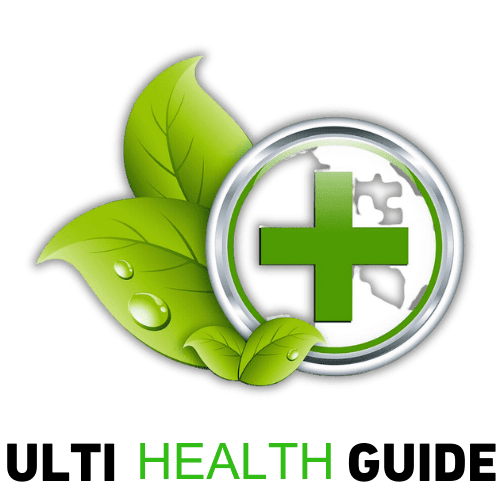Quick Reference
Is 6 Hours Of Sleep Enough?
For most people, NO.
According to the study, sleeping for 8 hours per day is favorable. Additionally, those who slept 6 hours had a higher risk of getting sick than those who hit 8 hours. Thus, we must get suitable amounts of rest to maximize our health!
How Much Sleep Do You Need?
- Newborns (0-3 months)
14 to 17 hours of sleep per day.
- Infants (4–12 months)
12 to 16 hours of sleep each day.
- Toddlers (1–2 years)
11 to 14 hours of sleep each day.
- Preschoolers (3 - 5 years)
10 to 13 hours of sleep each day.
- School-aged children (6 - 12 years)
9 to 12 hours of sleep each day.
- Teens (13 - 18 years)
8 to 10 hours of sleep per day.
- Adults (18+)
7 to 8 hours of sleep per day.
Signs And Symptoms Of Sleep Deprivation
- Irritability
- Fatigue
- Brain fog
- Tension headaches
- Anxiety
- Depression
- Muscle aches
- Confusion
- Memory problems
- Inability to concentrate
- Increased appetite
- Weight gain
- Increased risk of accidents
- Slow reaction time
- Mood swings
- Paranoia
- Hallucinations
Health Issues Due To Sleep Deprivation:
- Heart disease
- Stroke
- Hypertension(high blood pressure)
- Obesity
- Diabetes
Tips To Get A Good Night's Sleep
- Stick To A Regular Sleep Schedule
- Create A Bedtime Routine
- Avoid Caffeine And Alcohol Before Bedtime
- Avoid Using Electronic Devices Or Working In Bed
- Get Some Exercise
- Address Any Sleep Disorders


- Magicteam Sound Machines White Noise Machine with 20 Non Looping Natural Soothing Sounds and Memory Function 32 Levels of Volume Powered by AC or USB and Sleep Sound Timer Therapy for Baby Kids Adults

- Sleep Fairy Natural Sleep Aid

- MEDCHOICE 10-in-1 Melatonin 6mg Natural Sleep Aid, Sleep Supplement w L Theanine, 5 HTP, GABA, Valerian Root, Chamomile, Vitamin B6, Magnesium for Sleep, Stress & Mood Support
How Much Sleep Do You Need?
Life is super busy these days, so it's hard for a lot of people to get enough sleep. You have school or work, time with family, and hanging out with friends. All of this makes it really hard to find time to sleep.
How much sleep do you need?
The Centers for Disease Control and Prevention, or CDC for short, says that the National Sleep Foundation has suggestions for how much sleep people should get depending on their age. [1]
Newborns (0-3 months)
Newborns need 14 to 17 hours of sleep per day, which means they generally sleep for two to four hours at a time.
Infants (4–12 months)
Infants need about 12 to 16 hours of sleep each day, which means they usually sleep for about 3 to 5 hours at a time.
Toddlers (1–2 years)
Toddlers need about 11 to 14 hours of sleep each day, which means they usually sleep for about 3 to 5 hours at a time.
Preschoolers (3 - 5 years)
Preschoolers need about 10 to 13 hours of sleep each day, which means they usually sleep for about 3 to 5 hours at a time. But, some preschoolers may get only one long good night's sleep.
School-aged children (6 - 12 years)
School-aged children need about 9 to 12 hours of sleep each day. They are often able to sleep through the night without waking up.
Teens (13 - 18 years)
A lot of teenagers don't get enough sleep. This is because school starts early, there's homework to do, after-school activities to attend, and some even have part-time jobs.
Adults (18+)
Adults need 7 to 8 hours of sleep per day. But, many adults do not get enough sleep because of work, family, and social obligations.
Many older people also don't get enough sleep. This is often because they have health problems like arthritis or trouble going to the bathroom that make it hard to sleep.
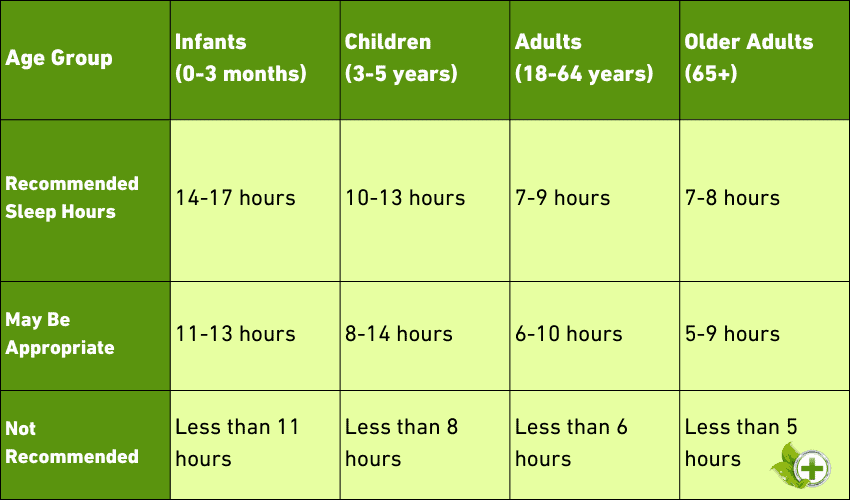
Are you a short sleeper?
Many adults don't get the recommended 7 to 8 hours of sleep a day. This is because they are busy with work and other stuff. This is alright in most cases, but if you don't get enough sleep, it may be a sign of a sleep disorder.
But, there is another group called "Natural Short Sleepers." You might have met some people who sleep short hours, like 3-5 hours per day, and still feel rested. They don't have any underlying health conditions; they have a difference in their genes. There are two types of short-sleepers: those who need less than six hours of sleep each day and those who need less than five. Scientists have found that only three special parts of our DNA, called DEC2, ADRB1, and NPSR1, help control when sleepy or awake.
UCSF says that if certain parts of your DNA, called DEC2 and ADRB1, are different than usual, you might only need 5 to 6 hours of sleep. If another part called NPSR1 is different, you might only need 4 to 5.5 hours of sleep. People with a mutation in NPSR1 have no memory deficits or other health problems caused by sleep deprivation. So, as you see, if you don't get at least 6 hours of sleep per day and are still doing fine, you might be a natural short-sleeper! [2]
That being said, only about 1-3% of the population are natural short-sleepers. So, if you're not one of them, there's nothing to worry about.
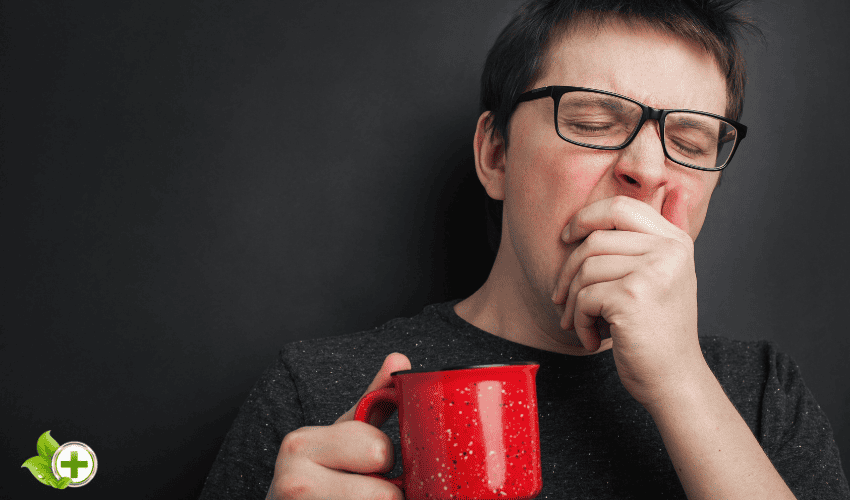
Biological sleep needs
Because experts say that seven to nine hours of sleep is enough for most adults doesn't mean that's what your body needs. Many factors can affect how much sleep you need, including;
- Age: As you age, you need less sleep. This is because your body's circadian rhythm (the "body clock" that tells you when to sleep and wake up) changes as you age. Your sleep pattern also changes as you age. For example, older adults wake up more at night and have more difficulty falling and staying asleep.
- Genes: As we discussed earlier, some people are natural short-sleepers and need less than six hours of sleep. But, most people need at least seven hours of sleep.
- Gender: Generally speaking, women need more sleep than men. This is because women's brains are more complex and use more energy than men's.
- Pregnancy: Pregnant women need more sleep than non-pregnant women. This is because their bodies are working overtime to support the growing baby.
- Sleep disorders: If you have a sleep disorder, you may need less sleep than people who don't have a sleep disorder. For example, people with insomnia often need less sleep than people without insomnia.
- Stress: If you're stressed, you may need less sleep than people who aren't stressed. This is because stress can lead to insomnia.
An average of 8.5 hours of sleep per day is the norm for most healthy adults. So, as you see, although the smallest suggested time frame is 7 to 8 hours, many individuals may need more than that to function at their best.[3]
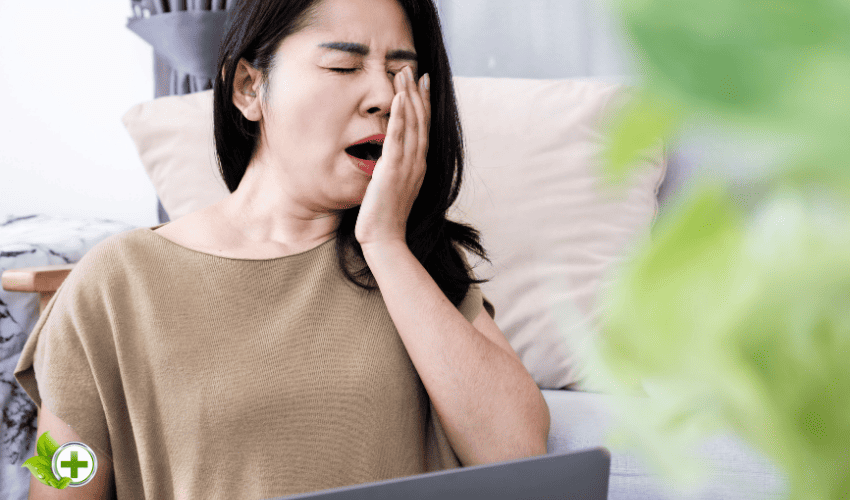
Signs and symptoms of sleep deprivation
You may suffer from some or all of the following signs and symptoms if you aren't getting enough sleep:
- Irritability
- Fatigue
- Brain fog
- Tension headaches
- Anxiety
- Depression
- Muscle aches
- Confusion
- Memory problems
- Inability to concentrate
- Increased appetite
- Weight gain
- Increased risk of accidents
- Slow reaction time
- Mood swings
- Paranoia
- Hallucinations
You must see a doctor if you're experiencing any of these symptoms.
Sleep deprivation can lead to serious health problems, including heart disease, stroke, hypertension(high blood pressure), obesity, and diabetes. Therefore, it's crucial to get help if you're sleep-deprived. [4]
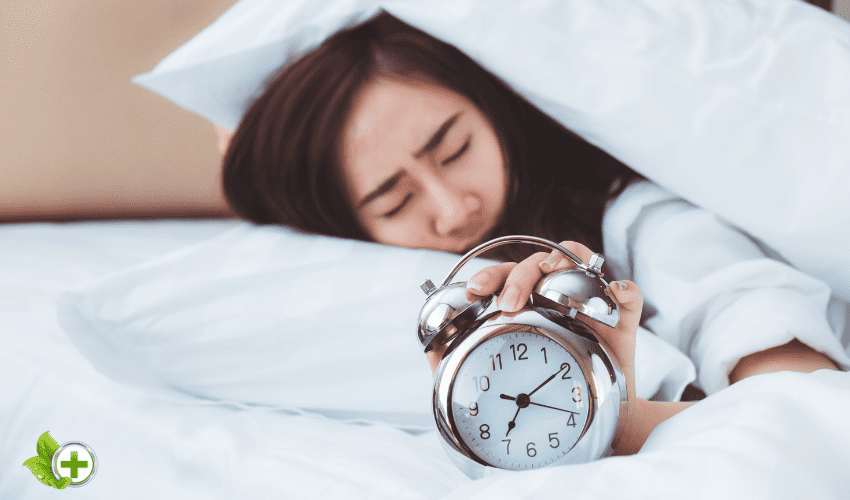
Is 6 hours of sleep enough?
Despite the recommendation of the CDC, experts have argued that 6 hours of sleep may be enough for some people. A study by the University of California, San Diego showed that a 6-hour sleep schedule could benefit some people.[5]
The study found that those who sleep for 6 to 7 hours per day have a better survival rate than those who sleep less or more than 6 to 7 hours. The study also found that those who sleep for 6 hours have a lower risk of death than those who sleep for 8 hours.
Yet, it's important to note that the study only found an association between sleep and mortality of women, not a cause-and-effect relationship. People who sleep for less than 6 hours are more likely to catch a cold than those who sleep for 7 hours or more. These studies suggest that 6 hours is the sweet spot for sleep duration. But, need to to note that every person is unique, and there is no one-size-fits-all solution for sleep.

Tips to get a good night's sleep
To get restful sleep, you should get a fair amount of deep and REM sleep. If you fall asleep while watching TV or working on the computer, you're not getting quality sleep. To get quality sleep, follow these tips:
Stick to a regular sleep schedule
Following a sleep schedule will help your body get into a sleep rhythm. It's essential to go to bed and wake up every day, even on weekends.
Create a bedtime routine
A bedtime routine will signal your body that it's time to sleep. This can include taking a bath, reading a book, or doing light stretches.
Avoid caffeine and alcohol before bedtime
Caffeine and alcohol can disrupt your sleep. Caffeine can linger in your system for up to 8 hours, so avoid it at night. Though alcohol can make you sleepy, it can also disrupt sleep.
Avoid Using Electronic Devices Or Working In Bed
Using electronic devices or working in bed can make falling asleep difficult. If you can't avoid working in bed, try to create a designated work area in your bedroom to associate your bed with sleep.
Get Some Exercise
Regular exercise can help you sleep better. However, it's best to avoid exercising close to bedtime as it can make it harder to fall asleep.
Address Any Sleep Disorders
If you're having trouble sleeping, you must see a doctor. Sleep disorders like sleep apnea can disturb your regular sleep cycle. Treatment for sleep disorders can help you get the restful sleep you need.
Conclusion
Sleep is essential for your overall health. If you're sleep-deprived, you may be at risk for serious health problems. The minimum sleep duration is 6 hours, but some people may need more. To get quality sleep, follow the tips above. If you're still having trouble sleeping, consult a doctor, as you may have a sleep disorder.
FAQ
Is 6 Hours Of Sleep Enough When Pregnant?
Pregnant women need at least 7 hours of sleep each night in order to stay healthy and support the growth of their babies. However, sleep deprivation and poor sleep are common among pregnant women. Insufficient sleep can lead to several health problems, including gestational diabetes, preeclampsia, and premature birth. In addition, poor sleep can also lead to increased stress levels and fatigue.
Why Do I Feel Tired After 6 Hours Of Sleep?
The average sleep needs of each individual vary, but most people need between 7 and 8 hours of sleep each night. You may have a sleep disorder or underlying health condition if you're consistently tired after 6 hours of sleep. Consult a doctor to discuss your sleep habits and possible causes of fatigue.
How Much Sleep Should A Teenager Get?
Teenagers need more sleep than older adults, typically 8-10 hours each night. However, many teenagers do not get enough sleep due to early school start times, homework, extracurricular activities, and social obligations. Sleep deprivation in teenagers can lead to moodiness, irritability, poor grades, and an increased risk of accidents.
References
- National Sleep Foundation: How Much Sleep Do I Need?
- UCSF: After 10-Year Search, Scientists Find Second ‘Short Sleep’ Gene
- Springer Nature Limited: Estimating individual optimal sleep duration and potential sleep debt
- NIH: Sleep Disorders and Sleep Deprivation
- Carnegie Mellon University: Short Sleepers Are Four Times More Likely to Catch a Cold

